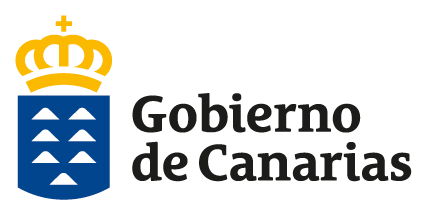El uso policial de la fuerza en el Cuerpo General de la Policía Canaria
DOI:
https://doi.org/10.36151/RCAP.2.5Palabras clave:
policing, detención policial, uso de la fuerza, principios básicos de actuación, sistema de intervención operativaResumen
El término policing se podría considerar desde la Criminología como una herramienta con funciones sociales, encaminadas a mantener la seguridad de la sociedad en la época actual, siendo uno de los procesos principales del que depende la legitimación de la policía y sobre todo su estrategia. En el momento en que se comete un delito, y sobre todo cuando se realiza la detención policial, el uso de la fuerza es una herramienta de los cuerpos policiales para el desempeño de su servicio diario, que según los principios básicos de actuación de la Ley 2/86 de Fuerzas y Cuerpos de Seguridad debe seguir un procedimiento gradual en el modo y forma en que debe desarrollarse. Para ello, el Cuerpo General de la Policía Canaria ha creado un sistema de formación continua denominado Sistema de Intervención en Táctica Operativa Policial. Este sistema ha sido creado como doctrina básica que permite a los componentes del Cuerpo hacer frente a las situaciones que puedan producirse en el ámbito del servicio operativo, siendo un conjunto de técnicas operativas de actuación, extraídas de diversas artes de combate, adaptadas a las necesidades reales de los cuerpos policiales, fundamentadas en el uso gradual de la fuerza y principio de mínima lesividad hacia el presunto delincuente. Este trabajo pretende realizar un estudio descriptivo para evaluar tal sistema, su repercusión en el Cuerpo General de la Policía Canaria y en la sociedad en general. Se pretende relacionar las conclusiones del estudio con alguno de los enfoques policiales relacionados con el concepto policing.
Descargas
Referencias
Allison T. Chappell, “Police academy training: comparing across curricula”, Policing: An International Journal of Police Strategies & Management, Vol. 31 Issue: 1, pp.36-56, https://doi.org/10.1108/13639510810852567. 2008.
Bango, S. (2014). Táctica Operativa Policial. Estudio comparativo de la asignatura de Defensa Personal Policial de los Centros de Formación de las Fuerzas y Cuerpos de Seguridad. Universidad de Salamanca.
Loubet del Bayle, J.L. (1992). La policía aproximación socio-política. Paris: Montchestien.
Martín, M. (1992). Policía, profesión y organización: hacia un modelo integral de Policía en España. Revista Española de Investigaciones Sociológicas.
Michael L. Birzer, “The theory of andragogy applied to police training”, Policing: An In-ternational Journal of Police Strategies & Management, Vol. 26 Issue: 1, pp.29-42, https://doi.org/10.1108/13639510310460288. 2003.
Monjardert, D. (2010). Lo que hace la policía. Sociología de la fuerza pública. Buenos Aires. Prometeo libros.
Ramírez, A. (2005). Estrategias sociales de policía. Madrid. Dykinson.
Recasens, A. (2003). La Seguridad, el sistema de justicia criminal y la policía. En: Sistema penal y problemas sociales. Valencia: Tirant lo Blanch.
Rico, J.M. y Salas, L. (1998). Inseguridad ciudadana y policía. Madrid. Tecnos.
Robert J. Kaminski, R.J. y Jeffrey A. Martin, “An analysis of police officer satisfaction with defense and control tactics”, Policing: An International Journal of Police Strategies & Management, Vol. 23 Issue: 2, pp.132-153, https://doi.org/10.1108/13639510010333697. 2000.
Rodríguez Coque, J.R. (2008). Intervención Operativa y Defensa Personal Policial. Madrid: Librería Argentina.
Rodríguez, M Y Salafranca, D. (2014). Criminología urbana: estrategias policiales en el contexto urbano. Comunicación escrita presentada en el I Congreso de Criminología de la Comunidad de Valencia: Universidad de Valencia.
TimPrenzler Louise Porter, Geoffrey P.Alpert, Reducing police use of force: Case studies and prospects Aggression and Violent Behavior,Volume 18, Issue 2, March-April 2013, Pages 343-356.
Torrente, D. (1997). La Sociedad Policial: Poder, trabajo y cultura en una organización policial. Madrid.: Centro de Investigaciones Sociológicas-Universidad de Barcelona.
Vidales Rodríguez, C. (2012). Seguridad Ciudadana, Políticas de Seguridad y Estrategias Policiales. Estudios Penales y Criminológicos, vol. XXXII, 469-502.
Publicado
Número
Sección
Licencia
Derechos de autor 2023 Revista Canaria de Administración Pública

Esta obra está bajo una licencia internacional Creative Commons Atribución-NoComercial-SinDerivadas 4.0.







